-
Where have Libya's antiaircraft missiles gone?
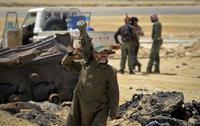
U.S. government officials fear that more portable anti-aircraft missiles may have slipped into the wrong hands or been sold in the black market after rebels in Libya raided one of Colonel Muammer el Qaddafi’s munitions depots; late last month rebels captured the city of Ga’a which contained an ammunition depot that housed Man-Portable Air-Defense Systems, lightweight surface to air missiles known as Manpads; in the ensuing chaos, the depot was raided and crates of weapons disappeared with no record of where they went
-
-
State Department to begin tracking its personnel
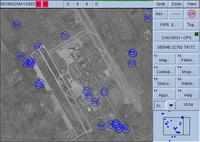
The U.S. State Department will soon be able to track the movement of its staff as they conduct diplomatic missions in dangerous areas in countries like Pakistan, Iraq, Yemen, and Afghanistan; using the Blue Force Tracker system, the State Department will be able to monitor its personnel’s movements via a small transmitter attached to a vehicle, aircraft, or a person
-
-
Senators concerned about terrorists entering U.S.
U.S. lawmakers have lingering concerns about the ability for terrorists to enter the country following last week’s Senate hearing that investigated how two Iraqi nationals with terrorist ties were able to enter the United States and live in Bowling Green, Kentucky for several years; A Government Accountability Report (GAO), released on the same day as the hearing, found four critical gaps in preventing terrorists from entering the United States
-
-
Five years on: Israel-Hezbollah 2006 war

Five years ago today, a war broke out between Israel and Hezbollah after Hezbollah fighters made a foray into Israel, killing several soldiers and carrying the bodies of two of them back into Lebanon; despite the uneven scale of death and damage — Israel has inflicted much more damage on Hezbollah and Lebanon — the war was initially perceived as an Israeli defeat because Israel was unable to stop Hezbollah from firing rockets into Israel during the entire conflict; more recently, though, this initial conclusion has been revised somewhat, with some analysts pointing out that the Israel-Lebanese border has been quiet during the past five years — the longest period it has been so quiet; a respected Israeli military analyst says that the 2006 war was an Israeli failure — and unless Israel changes its definition regarding who the real enemy is, the next Israel-Hezbollah war will be and Israeli failure as well
-
-
ICE chief: Israel's inclusion on terror watch list a "mistake"
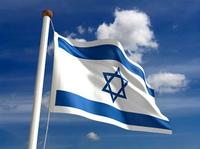
DHS officials are now saying Israel’s inclusion on a list of countries that promote, produce, or protect terrorists was a mistake; John Morton, director of the U.S. Immigration and Customs Enforcement (ICE), said, “The addition of Israel to the list—- was based on inaccurate information provided to the OIG during the course of its audit”; a May 2011 report contained an appendix which lists “specially designated countries” that promote terrorism; the list instructed ICE agents to pay special attention to, and investigate more thoroughly, individuals from these countries arrested by ICE; ICE spokesperson suggested that Israel was included not because its government supports terrorism, but because some individual Israelis do pose a terror threat; 1.5 million of Israel’s 7.5 million citizens are Arabs
-
-
Palestinian non-violent resistance will challenge Israel
In the last twenty years, the Palestinians launched two violent campaigns — intifadas — against Israeli occupation; both intifadas — the first in 1988, the second in 2000 — were forcefully suppressed by Israel; a Palestinian scholar, now teaching in the United States, has long advocated a peaceful, Gandh-like resistance as a better way for the Palestinians to achieve their national goals; he argued that the indiscriminate killing of Israeli civilians was not only a moral stain on the Palestinian national movement — it is also counter-productive, because it gave Israel reasons to respond with overwhelming force and continue to portray the Palestinians as unwilling to be partners in peace; the Palestinian leadership ignored him in the past, but appears to be listening to him now; Israel is anxious
-
-
U.S. and Kenya open talks to resume direct flights
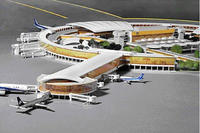
The United States is resuming talks with Kenya to discuss the reopening of direct flights between the two countries; due to fears of terrorism from neighboring Somalia, in September 2009 U.S. officials cancelled a Delta Airlines flight just hours before the fully-booked plane was schedule to depart; the flight would have been the first direct link between the two countries since the late 1980s
-
-
ICE lists Israel among countries that promote, produce, or protect terrorists

DHS’s Immigration and Customs Enforcement (ICE) issued a report describing the methods on which the agency relies to arrest, detain, and, if necessary, deport undesirable aliens; the report contains an appendix which lists “specially designated countries” whose detained nationals should be more closely examined; among the countries whose nationals should be paid special attention as potential terror risks is Israel — which the report considers a “Promoter, Producer, or Protector” of terrorists
-
-
Were Pakistani IED plants tipped off to impending raids?
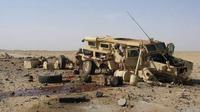
The U.S.-Pakistan relationship is becoming increasingly strained as several terrorist bomb-making factories in Pakistan were evacuated shortly after American officials alerted their Pakistani counterparts to their existence; so far, in the last month alone, four bomb-making factories were evacuated just before they were raided, but it is unclear whether that was the result of deliberate leaks by Pakistani intelligence officials or if they had been planned ahead of time as a precautionary measure; Senator john McCain (R-Arizona) said: “After all, the United States is investing billions and billions of dollars in Pakistan. Taxpayers have a right to have a return on that”
-
-
Farm animal disease to increase with climate change
Researchers looked at changes in the behavior of bluetongue — a viral disease of cattle and sheep — from the 1960s to the present day, as well as what could happen to the transmission of the virus forty years into the future; they found, for the first time, that an outbreak of a disease could be explained by changes to the climate
-
-
More borders, cheaper conflict steadily increase number of wars
New research shows that the frequency of wars between states increased steadily from 1870 to 2001 by 2 percent a year on average; the research argues that conflict is being fed by economic growth and the proliferation of new borders
-
-
Yemen: the new Afghanistan?
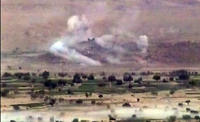
President Barack Obama announced last week the acceleration of the scheduled withdrawal of American troops from Afghanistan; there was an implicit theme in the speech — the fact that Afghanistan has slowly been eclipsed by other countries as a hot-bed for terrorists; continued U.S. preoccupation with Afghanistan would mean that the United States would have fewer resources to devote to these other places; one of these place is Yemen; two weeks ago, the United States let it be know that it was intensifying the UAV campaign against terrorist targets in Yemen — and that the CIA drones would fly to their missions from a secret base in the region
-
-
Violence in Syria continues to spread
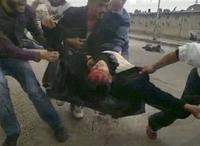
The violence in Syria spread, as thousands escape to Turkey seeking refuge; over the weekend Turkey contemplated the idea of sending its military to occupy a small area inside Syria and turn it into a safe haven protected by the Turkish Army, but was talked out of it by the United States; Turkey has now accepted more than 8,000 fleeing Syrians; Syria has closed off an area near the eastern town of al-Boukamal, on the Iraqi frontier; the area was a smuggling corridor for insurgents and weapons into Iraq in the 2000s, and the Syrian government was upset that the area was now used to smuggle arms into Syria to help the anti-government protesters; the number of civilians killed has reached 1,400, and the number of arrested now stands at 10,000
-
-
Security Council to consider tough Syria condemnation
UN Security Councils considering harsh condemnation of Syria’s crackdown; draft resolution, advanced by Britain, France, Germany and Portugal, will likely run into a Russian, Chinese veto
-
-
Pakistan phases out U.S.-made border monitoring software
In 2002 the United States provide sixteen countries with a border-monitoring system called Personal Identification, Secure Comparison and Evaluation System (PISCES); Pakistan has now decided to replace the system with a Pakistani-developed system called Integrated Border Management System (IBMS); the government says the reason for the change is the IBMS is more capable, and denies the decision is the result of worries that the United States has access to PISCES-collected information
-
- All
- Regional
- Water
- Biometrics
- Borders/Immig
- Business
- Cybersecurity
- Detection
- Disasters
- Government
- Infrastructure
- International
- Public health
- Public Safety
- Communication interoperabillity
- Emergency services
- Emergency medical services
- Fire
- First response
- IEDs
- Law Enforcement
- Law Enforcement Technology
- Military technology
- Nonlethal weapons
- Nuclear weapons
- Personal protection equipment
- Police
- Notification /alert systems
- Situational awareness
- Weapons systems
- Sci-Tech
- Sector Reports
- Surveillance
- Transportation
Advertising & Marketing: advertise@newswirepubs.com
Editorial: editor@newswirepubs.com
General: info@newswirepubs.com
2010-2011 © News Wire Publications, LLC News Wire Publications, LLC
220 Old Country Road | Suite 200 | Mineola | New York | 11501
Permissions and Policies
Editorial: editor@newswirepubs.com
General: info@newswirepubs.com
2010-2011 © News Wire Publications, LLC News Wire Publications, LLC
220 Old Country Road | Suite 200 | Mineola | New York | 11501
Permissions and Policies
